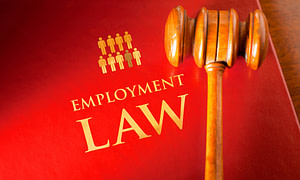Time to sue
In Australia, an employer can sue an employee for negligence if the employee fails to exercise a reasonable standard of care, leading to harm or damage to another party. Employers owe a duty of care to their employees to provide a safe working environment and to take reasonable steps to prevent foreseeable harm. If an employee breaches this duty of care and causes harm to the employer or other employees, the employer may have grounds to sue for negligence.
However, it's essential to note that suing an employee for negligence is not always straightforward. The employer would need to demonstrate that the employee breached their duty of care, that the breach caused harm, and that the harm resulted in measurable damages.
In Australia, the law regarding employer-employee relationships, including negligence claims, is primarily governed by both common law principles and statutory regulations. The key points to consider regarding suing an employee for negligence include:
Duty of care
Employers have a duty of care towards their employees to provide a safe workplace environment. This duty includes taking reasonable steps to prevent foreseeable harm, such as providing adequate training, implementing safety protocols, and maintaining equipment and premises in a safe condition.
Breach of duty
To succeed in a negligence claim, the employer must demonstrate that the employee breached their duty of care. This typically involves showing that the employee failed to act as a reasonable person would in similar circumstances, leading to the harm or injury.
Causation
The employer must establish a causal link between the employee's breach of duty and the harm suffered. In other words, the harm must have been a direct result of the employee's negligent actions or omissions.
Damages
To recover compensation, the employer must demonstrate that they have suffered measurable damages as a result of the employee's negligence. This could include financial losses, such as medical expenses, lost income, or property damage.
Contributory negligence
In some cases, the employer's own negligence or failure to fulfill their duty of care may contribute to the harm suffered. This concept of contributory negligence could reduce the amount of compensation the employer is entitled to or even bar their claim altogether.
Workplace regulations
Australian workplace laws, including occupational health and safety (OHS) regulations, impose additional obligations on employers and employees to maintain a safe working environment. These regulations may impact the outcome of a negligence claim and influence the employer's legal obligations.
Legal process
Pursuing a negligence claim against an employee typically involves initiating legal proceedings in a relevant court or tribunal. It's essential for both parties to seek legal advice and follow proper procedures throughout the litigation process.
There are often statutory regulations and workplace safety laws that govern employer-employee relationships in Australia, which could influence the outcome of a negligence claim.
While employers have the right to sue employees for negligence, such cases can be complex and require careful consideration of various legal factors. Employers should seek legal advice and consider alternative dispute resolution mechanisms before pursuing legal action against an employee for negligence, as well as visiting the Fair Work Ombudsman for more information.


Want to use 11 Recruitment as your recruitment agency?
Now that you better understand whether an employer can sue an employee for negligence in Australia, you may be interested in learning more about 11 Recruitment's employment and recruitment services.
11 Recruitment is the leading perm and temp recruitment agency for white-collar staff. We source high achievers for jobs in Perth and throughout Australia for various sectors, including:
So, whether you're a job seeker who wants to take the next step in their career, or you're an employer who wants to hire top talent for your business, we may be able to help. Click the button below to learn more about our services.




















